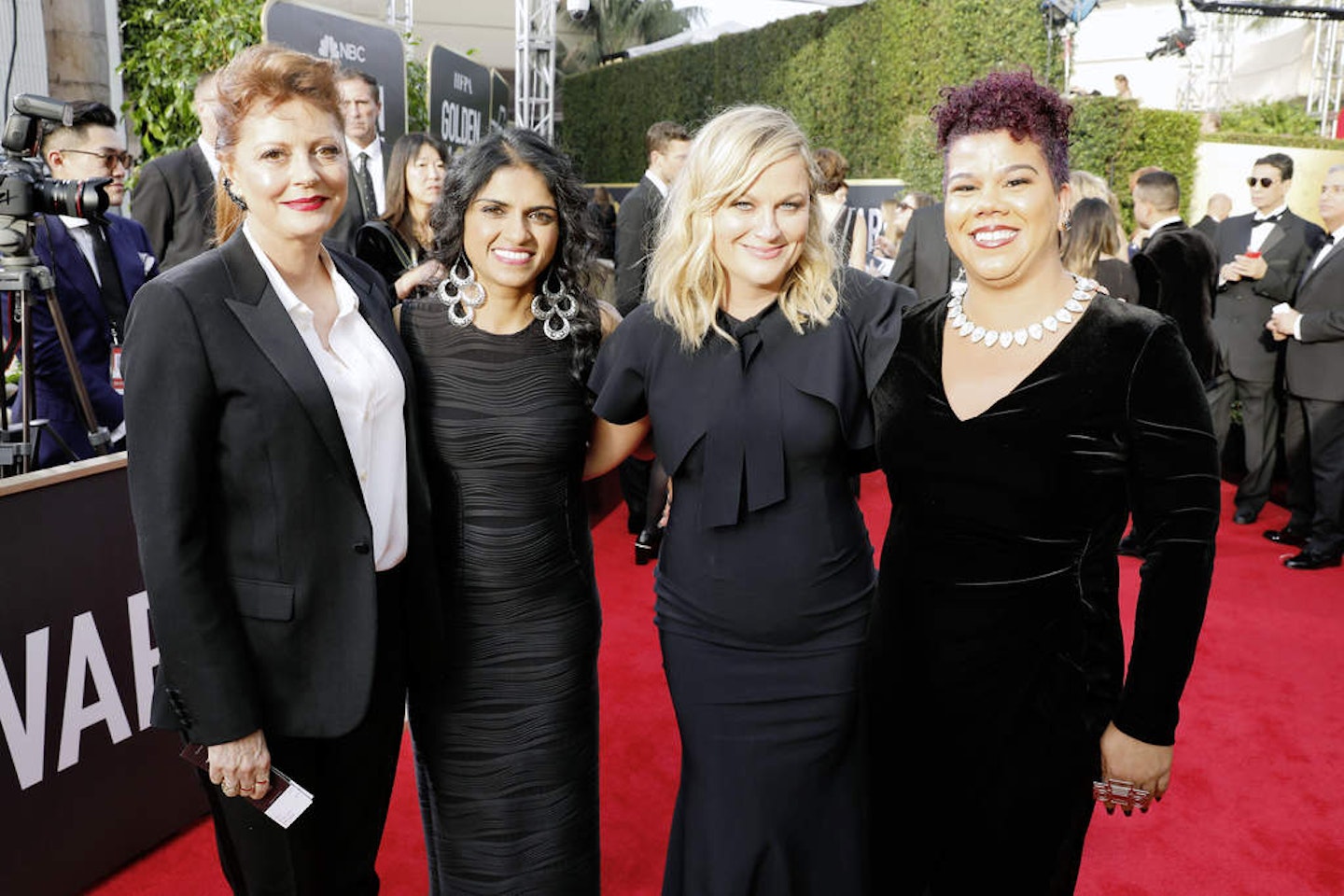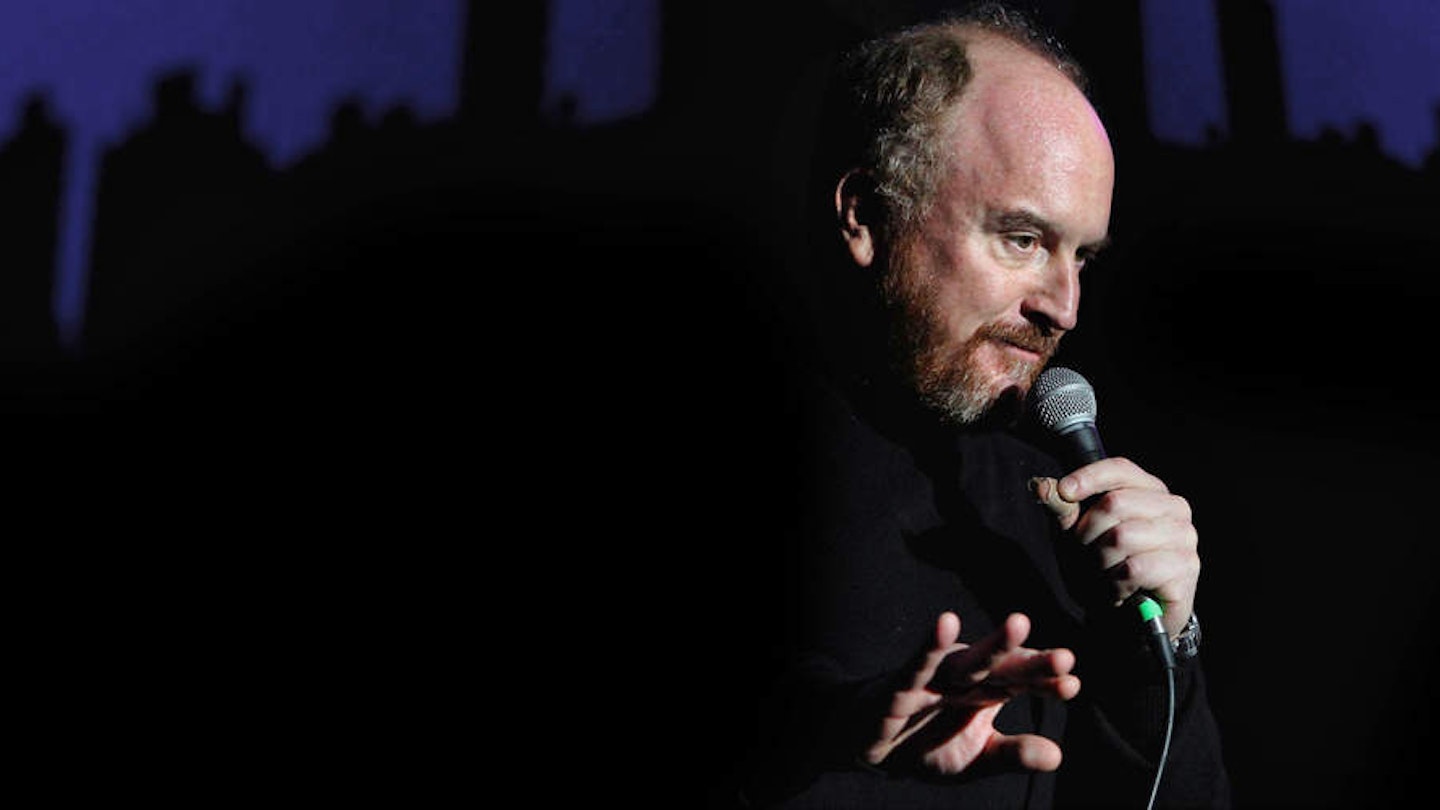American comedian Louis CK joined the disgraced men of the #MeToo club in November 2017 when allegations surfaced that he masturbated in front of women – often younger, less-famous comedians – without their consent. At the time, CK responded ‘these stories are true’ and sort of apologised. (He didn’t actually use the word sorry, instead saying: ‘What I learned later in life, too late, is that when you have power over another person, asking them to look at your dick isn’t a question. It’s a predicament.’) is broke just as the #MeToo movement was gaining momentum, and it seemed CK, after the landslide caused by the Weinstein allegations, would be one of a number of men (along with a few women) to bite the dust.
Time was up, or so Oprah told us. Women were coming forward, regardless of how powerful, famous, funny or even self-aware their abusers were. In his non-apology, CK told the world that he would ‘step back and take a long time to listen’. And yet, in late August 2018, less than a year after the revelations, he performed a surprise gig in a club in New York. His appearance launched a thousand think pieces asking just how long is long enough; when and how can a person who abuses power and sexually violates, harasses or intimidates women be back in the spotlight? Female journalists and comedians spoke loudly and slowly: rehabilitation must be cautious, vulnerable, sensitive, patient. These men must try to truly understand what they did wrong.
Obviously, CK does not read think pieces. Because last week, a leaked audio recording of his latest stand-up performance found its way to YouTube. Along with jokes made at the expense of the Parkland shooting survivors and his enjoyment of the word ‘retarded’, he’s also feeling very sorry for himself. ‘So, what kind of year did you guys have? I bet none of you had the same year that I had... You ever have a whole bad year?’ CK said, his sense of victimhood palpable. In response to a disapproving audience member, he charges: ‘What’re you gonna do, gonna take away my birthday? My life is over, I don’t give a shit.’
The outcry was immediate, but perhaps lm director Judd Apatow summed up the dismay best, tweeting that CK ‘can’t look inward’ and instead ‘this is a new way of looking at life through the eyes of someone who wants to be the number one victim. He is attacking people who might be seen as more worthy of compassion because he believes he was wronged.’
Sadly, no one has yet to offer such a plausible theory regarding Kevin Spacey’s utterly unfathomable video released on Christmas Eve, where he plays his former character, House Of Cards’ Frank Underwood (the role he was eventually axed from due to allegations against him), and possibly himself, talking about life and art and truth and death, all while wearing an apron with dancing Santa Clauses on. Yes, really.
Spacey was also dislodged from up high in the Weinstein avalanche, first accused of sexual misconduct by actor Anthony Rapp in 2017. Within a week a dozen more men came forward claiming Spacey harassed, assaulted or attempted to rape them, some saying they were teens at time. Yet one thing is clear from the bizarrest three minutes of video footage you’ll ever see: this is another man who feels that he’s the one who has been wronged. ‘I’m certainly not going to pay the price for the things I didn’t do,’ he says.
The video arrived on the same day that Spacey was charged with sexually assaulting another teenager in 2016. ‘You wouldn’t rush to judgement without facts,’ he says, staring down the camera, drenched in a sly menace, an unnerving meta performance that seems to suggest this whole thing might just be a game to him. In the last 14 months, we’ve watched the mighty fall amidst a collective realisation that a culture of power and sexual harassment is epidemic – and unacceptable. We have seen dangerous men brought to justice, such as Larry Nassar, the American Olympic gymnastics doctor, who was convicted of serial child molesting. We have seen survivors corner senators in a lift demanding to be heard; we have seen celebrities dress in black on the red carpet at last year’s Golden Globes, giving stirring acceptance speeches.

So Time’s Up, right? Apparently not, according to CK and Spacey. Their recent public statements appear to suggest they think their comeback is only just beginning. Yes, despite the groundswell, despite the endless think pieces, despite Oprah, these men are refusing to get the memo. They are still demanding their seat at the table because in their heads they have been wronged. Why won’t these men wake up?
Two weeks ago Keira Knightley said she was worried men are excluded from the #MeToo movement. ‘It’s a really tricky discussion,’ she said, ‘but I don’t know how we move forward without engaging men.’ And she’s right. We need men to understand this is their issue as much as it’s ours. But that can’t happen until there’s a serious cultural upheaval, one #MeToo has failed to yet deliver. Spacey and CK have proved that a landscape remains whereby some men still feel so secure in their power, so deeply rooted in it, that despite – in the comedian’s case at least – confessing to his crimes, they can still demand sympathy; they can still play the victim.
To be knocked from their pedestals is not a soul-searching journey of self-reflection in which they ask themselves tough questions, but, instead, they have doubled down on their sense of entitlement, twisting accusations of sexual misconduct into an overreaction that should have been forgotten by now; an overreaction that is getting in the way of their lives, publicly wronging and shaming them. And the worst thing is that, in all this, the actual victims are all but forgotten.
